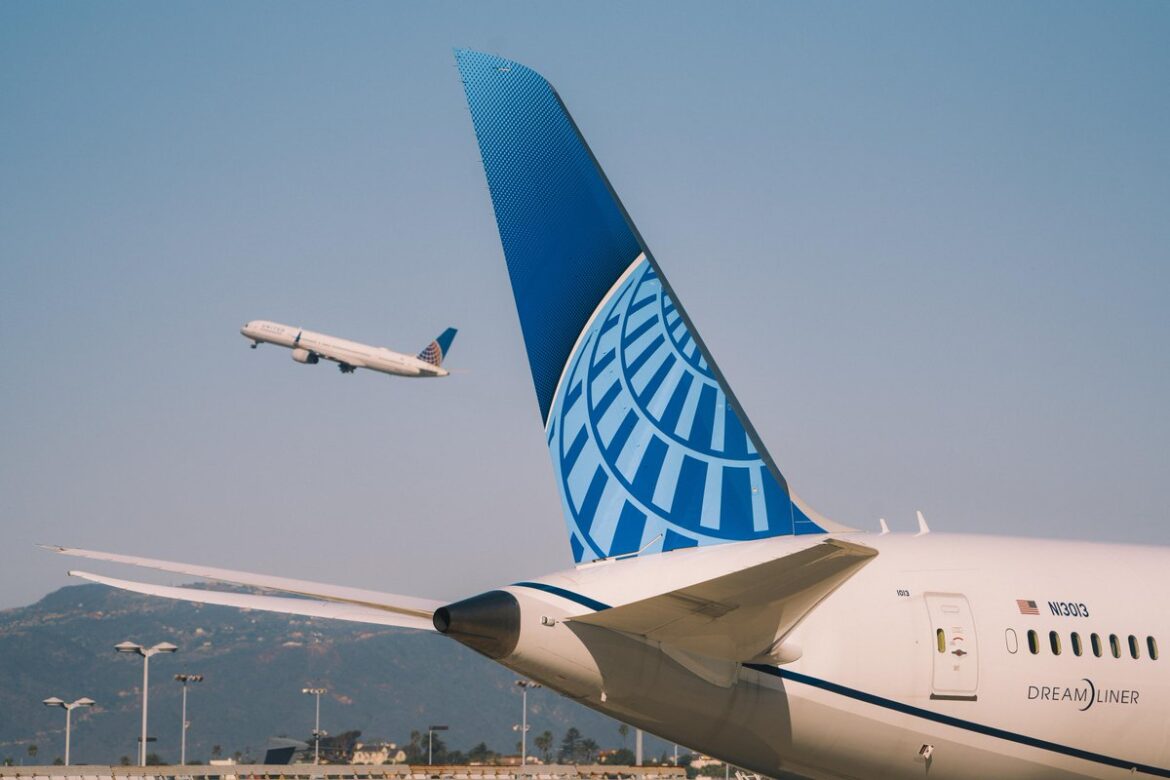Advertiser & Editorial Disclosure: The Bulkhead Seat earns an affiliate commission for anyone approved through the links below. This compensation may impact how and where links appear on this site. We work to provide the best publicly available offers to our readers. We frequently update them, but this site does not include all available offers. Opinions, reviews, analyses & recommendations are the author’s alone, and have not been reviewed, endorsed, or approved by any of these entities.
Over the past few weeks, United Airlines seemed to be popping up daily with random maintenance issues. One aircraft lost a maintenance panel while in flight, another diverted in Sydney with its main landing gears open, hydraulic failure plagued a Mexico City-bound flight, an issue caused a plane landing in Houston to roll into the grass, and a trio of other incidents including a tire falling off upon takeoff at SFO have all been recently reported. United’s CEO issued a statement around safety concerns and now the Federal Aviation Administration (FAA) has apparently stepped in.
"first time in airline history" the thing says
— 🇺🇦 JonNYC 🇺🇦 (@xJonNYC) March 23, 2024
..ability to operate and grow our airline. We will also see an increased FAA presence in our daily operation. We are concerned of the damage already done, and this will be long lasting without an immediate and dramatic course reversal.”
— 🇺🇦 JonNYC 🇺🇦 (@xJonNYC) March 23, 2024
Aviation watchdog, @JonNYC, was the first to report that the FAA will “have an increased presence in [United’s] daily operation.” The agency will be reviewing United’s manuals, work processes, and facilities. While this is ongoing, it’s reported that United cannot add any new routes, pilots can’t be certified, and they cannot use any newly delivered aircraft on revenue-earning routes.
CNN is reporting that the FAA released a statement that reads:
Safety assurance system routinely monitors all aspects of an airline’s operation. It focuses on an airline’s compliance with applicable regulations; ability to identify hazards, assess and mitigate risk; and effectively manage safety.”
It’s unknown how long this oversight will last and what impact it will have on United’s revenue and operations. Air travel is still extremely safe and even with these incidents I never questioned flying United or any other US carrier.
Anthony’s Take: It will be interesting to see what the FAA finds and what corrective actions are taken. More details will certainly be released and this will hopefully improve processes to ensure less incidents.
(Image Credit: United Airlines.)
User Generated Content Disclosure: The Bulkhead Seat encourages constructive discussions, comments, and questions. Responses are not provided by or commissioned by any bank advertisers. These responses have not been reviewed, approved, or endorsed by the bank advertiser. It is not the responsibility of the bank advertiser to respond to comments.
Advertiser & Editorial Disclosure: The Bulkhead Seat earns an affiliate commission for anyone approved through the links above This compensation may impact how and where links appear on this site. We work to provide the best publicly available offers to our readers. We frequently update them, but this site does not include all available offers. Opinions, reviews, analyses & recommendations are the author’s alone, and have not been reviewed, endorsed, or approved by any of these entities.

8 comments
United has come a long way from just breaking guitars. The Sons of Maxwell could have another viral hit on their hands!
This is directly a result of the 24 hour social media news cycle and not a reflection on United. All the other airlines have similar issues, which are ultimately not hurting anyone
Agree completely that this is probably common to all operators. Remains to be seen what meaningful improvements more FAA oversight will bring…
You should explain how the “no further growth portion” of your article is completely unconfirmed.
Actually not. These type of incidents require reporting. If there is a pattern, actions are taken. FAA action has absolutely nothing to do with social media trends.
Read the official FAA statement, it does NOT say they are stopping the airline from growing or getting airplanes. So the articles headline is wrong and the author is using a guy on Twitter as his source that is sometimes correct and sometimes wrong.
If it was Frontier or Spirit the condemnation would be so loud
The FAA needs true leadership to make the agency much more visible to the public. Double the number of inspectors and reign in the amount of supervision delegated to the very airlines they are charged with supervising.